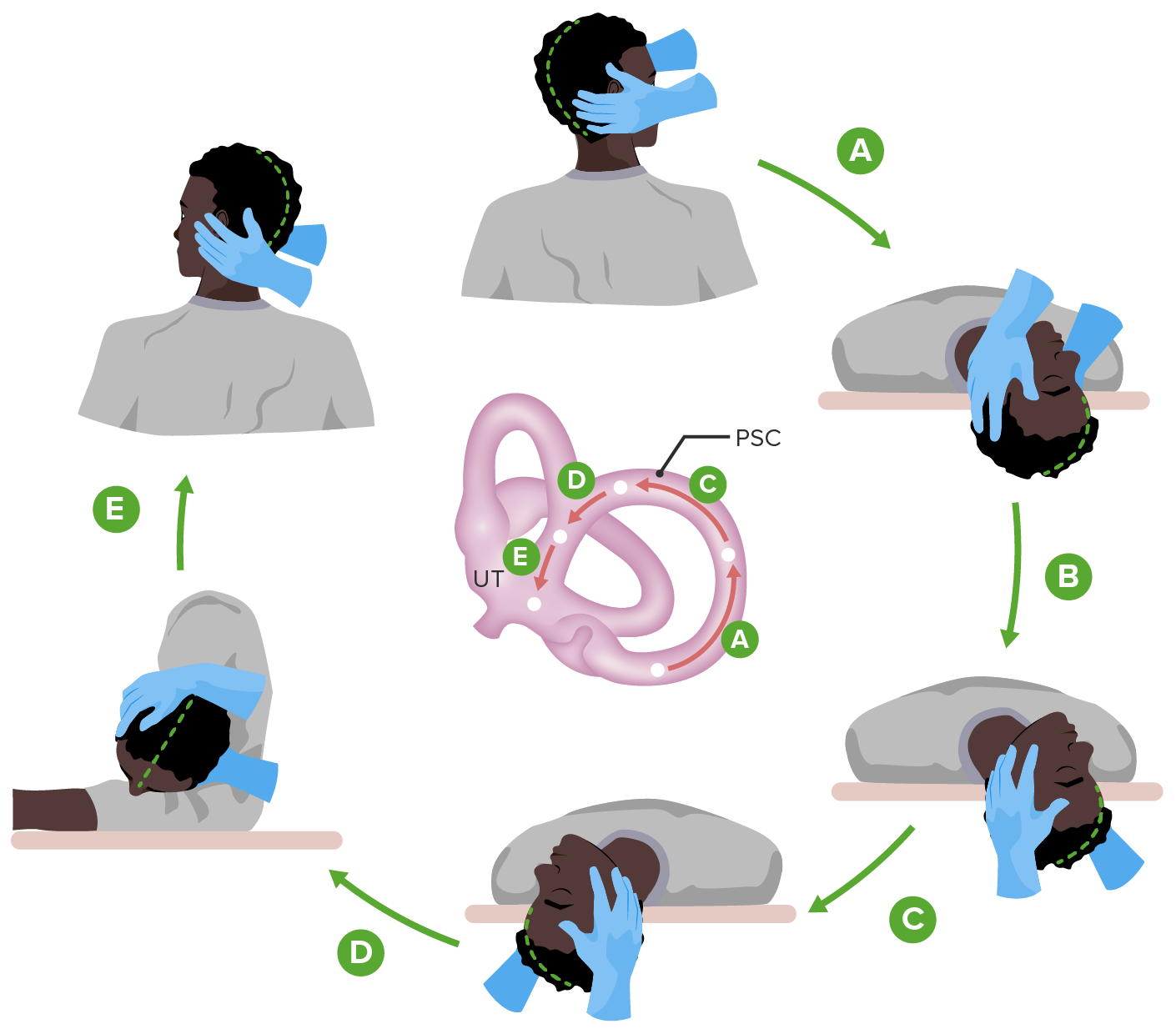Playlist
Show Playlist
Hide Playlist
Vertigo: Introduction
-
Slides 11 VertigoDizziness Neuropathology II.pdf
-
Reference List Pathology.pdf
-
Download Lecture Overview
00:01 In this section, we'll take a look at vertigo, dizziness, and syncope. 00:05 Let's begin. Vertigo and dizziness. Dizziness. What is it? Vague term with many meanings in different people. 00:14 Lightheadedness, perhaps disequilibrium, unsteadiness, vertigo. 00:19 But what is actually vertigo? A hallucination of self or environmental movement. 00:27 Most commonly rational, but can be linear. 00:32 Usually indicates acute asymmetry between the vestibular nuclei. 00:38 Ever seen a car and you see the car next to you that's moving and you feel like, oh my goodness, I forgot to put my foot on the break, as an example. 00:46 Tinnitus, spontaneous perception of sound, typically ringing or buzzing. 00:53 Anything that may cause disruption to the eighth cranial nerve, perhaps resulting in this ultra perception of sound. 01:01 The differentials for vertigo, spontaneous, single prolonged episode, maybe it's vestibular neuronitis or to the nerve of it, or what about the labyrinthine? Unbelievable that it's able to then move from the middle ear to the inner ear where you go from that type of percussion and then it travels through a fluid. Every single time I think about it, it's amazing. 01:25 Anyhow, labyrinthine concussion or lateral medullary or cerebellar infarction. 01:31 Spontaneous vertigo. 01:34 Recurrent episodes, this maybe could be find with Maniere's disease, Maniere's disease. 01:40 We have perilymphatic fistula, migraines, and we have posterior circulation type of ischemia. 01:49 Positional vertigo, peripheral. 01:52 We have something called benign positional paroxysmal vertigo, BPPV. 01:57 Central, stroke, tumor, or your multiple sclerosis plaques. Remember these? Demyelinating, especially around the ventricles. 02:09 May then follow the periventricular veins. I'm gonna call that Dawson's fingers.
About the Lecture
The lecture Vertigo: Introduction by Carlo Raj, MD is from the course Vertigo and Dizziness. It contains the following chapters:
- Vertigo, Dizziness, and Syncope
- Vertigo: Differential
Included Quiz Questions
What is a common presentation for tinnitus?
- Ringing or buzzing sensation
- Sudden loss of consciousness
- Sharp ear pain with purulent discharge
- Facial drooping and slurred speech
Which of the following conditions is LEAST likely to cause vertigo?
- Cerebral infarction
- Ménière disease
- Acoustic neuroma
- Perilymphatic fistula
- Benign paroxysmal positional vertigo
Which of the following conditions is primarily a peripheral cause of vertigo?
- Ménière disease
- Brainstem ischemia
- Multiple sclerosis
- Vestibular migraine
- Cerebellar infarction
Customer reviews
3,0 of 5 stars
| 5 Stars |
|
1 |
| 4 Stars |
|
0 |
| 3 Stars |
|
0 |
| 2 Stars |
|
0 |
| 1 Star |
|
1 |
The classification used here makes it confusing to grasp and is redundant.
Me gusta la conferencia porque es muy precisa Define términos sencillos de entender y permite diferenciar los tipos de vértigo La forma en la que el expositor se expresa es muy amigables




